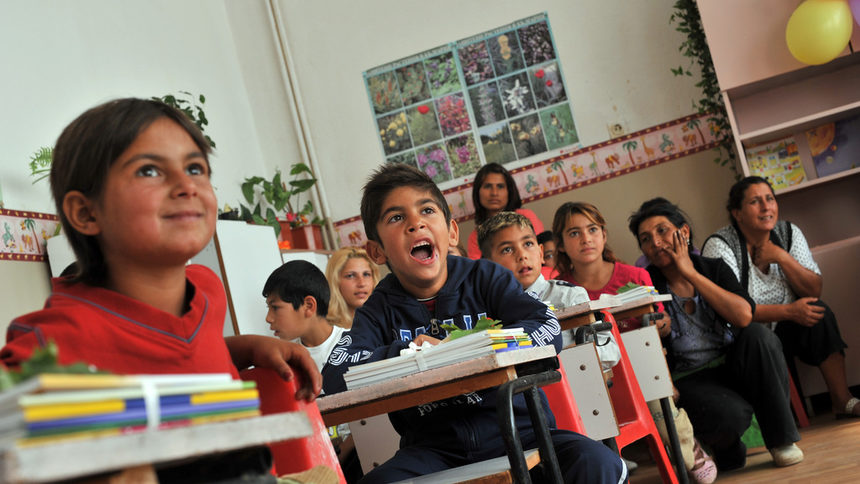In an article critical of the state and the attitude of Bulgarians, the website Marginalia examined the status of Roma integration in Bulgaria by 2021. The text notes how successful Roma need to hide their origins, while at the same time parents refuse to keep their children in classes with the presence of Roma children. On the flip side, the state, at the systemic level, is barely moving a finger in creating and implementing effective integration policies.
This process of aggressive segregation is most pronounced in the education system, where, ironically, the seeds of Roma integration must germinate. At school, children of Roma origin must have conditions for learning Bulgarian, create social ties with other children and feel Bulgarian. In this process, they must be able to break away from the ghetto and feel ambition and belonging to the system. Decades of hatred and stereotypes, however, undermine this process, and the focus of the general population remains on perpetuating the stigma against Roma – children and adults. Subsequently, the Roma left the education system and sank deeper into the trap of segregation and the ghetto.
The article also cites data from an Open Society study, which notes that attitudes towards the Roma deteriorated significantly between 2013 and 2021, coinciding with the entry of “patriotic parties” into public policy. The parties support the National Strategy for Roma Integration in theory, but in practice it has no effect. Marginalia points out that this may be due to the fact that “the Strategy and a number of other similar documents are so long, confusing and general that it is not worth reading.” This leads to the conclusion that the Strategy for Roma Integration in Bulgaria needs to be revised, synthesized and, above all, implemented. Unfortunately, however, there is no realistic party that insists on this and that takes real action. Marginalia notes that the credit for this goes mainly to the political incompetence of the big parties.
From a more positive point of view, Stanimira Hadjimitova of the Center for the Development of Sustainable Communities commented for Marginalia that Montana and Breznik flatly refuse to divide their policies into Roma and Bulgarian. They point out that policies should be implemented that affect disadvantaged people in general: Roma, Bulgarians, Turks and all others. We don’t have to separate them from us. ” This, of course, is not enough at the national level, but a spark can be turned into a hearth.









